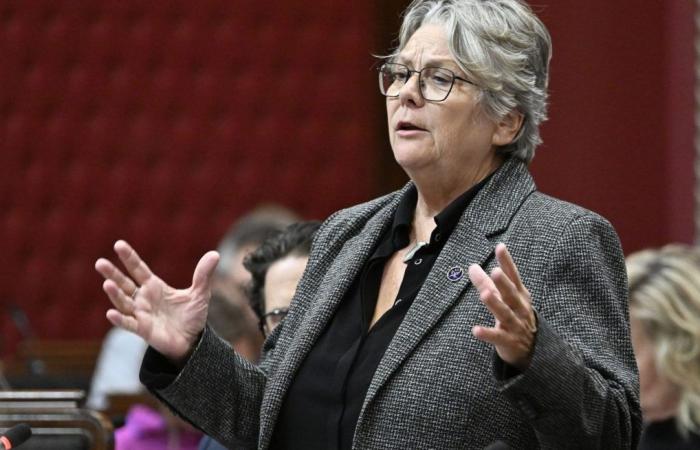Minister Chantal Rouleau’s social assistance reform is financed by the abolition of an allowance of $161 given to certain categories of parents and people aged 58 and over.
On September 11, Minister Rouleau tabled Bill 71, which aims to make the social assistance system “more humane”.
The reform involves in particular better “support” for people with mental health problems and other psychosocial disorders.
The bill also expands access to the Objectif Emploi program, grants new bonuses to people seeking to complete their secondary education and reduces pressure on people who have incurred social assistance debts.
However, these additions have a cost: $97.06 million by 2030. Sums that the State intends to largely free up by abolishing what is called “the temporary employment constraint allowance”. [CTE] ».
The CTE allowance is currently paid each month to 47,841 people in Quebec, according to statistics dating from December 2023. These beneficiaries receive $161 per month in addition to their social assistance check of $807.
To have access, you must meet one of the following criteria: pregnancy, health problem, dependent preschool age child, dependent disabled child, age 58 or over, awaiting a decision, caregiver , responsible for a foster home or a family-type resource.
Of this group, only people with a dependent child aged 5 or under (7,558) or those aged 58 and over (30,111) will be affected by the compression, i.e. 37,669.
For others, such as parents of disabled children, for example, the allowance will be “replaced” by “equivalent” assistance via other envelopes of the program. The ministry claims that this way of doing things will “simplify” the regime.
Acquired right
By abolishing this aid, the State believes it will be able to save $99.7 million over five years, according to the brief filed by Mr.me Roller to the Council of Ministers, including Duty got a copy.
This allows him to say that the bill will be “financed using funds from the Ministry of Employment and Social Solidarity”.
However, people who already receive the $161 per month will be able to continue to have access to it as long as they remain on social assistance, the ministry having provided a sort of “acquired right” for them.
It is therefore the potential providers who will not be entitled to it. This is why the ministry believes it can achieve increasing savings each year, which would increase from $2.5 million next year to $34.2 million in 2029-2030.
Traditionally, the CTE allowance constituted a sort of transitional regime between basic social assistance and the social solidarity program, which is more generous because it is aimed at people with “severe employment constraints”. ”, such as a serious illness or disability preventing them from working.
To justify its decision to abolish the allowance, the ministry says it wants to emphasize “health constraints” and promote a return to employment.
“On the backs of the worst-off people”
The labor market has “evolved”, responded the ministry in an exchange with Duty. It “offers more opportunity and flexibility than in the past” for people with what are called “employment constraints”.
The state also believes that by abolishing the $161 check, it will be easier to bring them back into the job market.
This allowance, writes the ministry, made people “ineligible” for other employment integration programs.
These programs provide access to benefits that are more “advantageous” than the $161 and “the amount of which can go up to $475 per week,” he adds.
The current CTE allowance “retains” people in social assistance programs, the ministry also argues.
However, according to the Collective for a Quebec without Poverty, it is “inhumane”. “What is aimed [la ministre] Exactly ? Save tens of millions of dollars on the backs of the most disadvantaged people in our society? » he denounced the day after the tabling of Bill 71.
The organization points out that including the additional $161 per month, the disposable income of a person on social assistance is $13,177 per year, “enough to cover 54% of their needs”, according to the measure of Statistics Canada consumption basket.
Currently, 278,444 adults and 58,671 children are receiving social assistance in Quebec.






